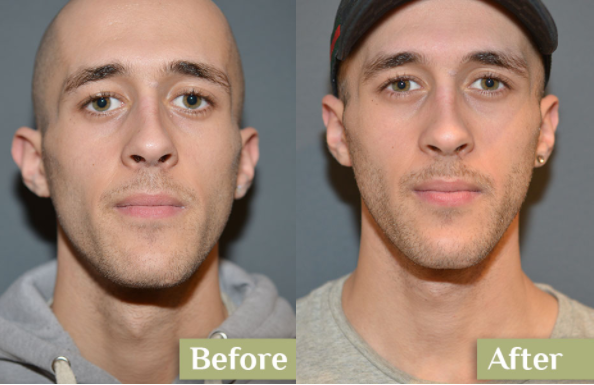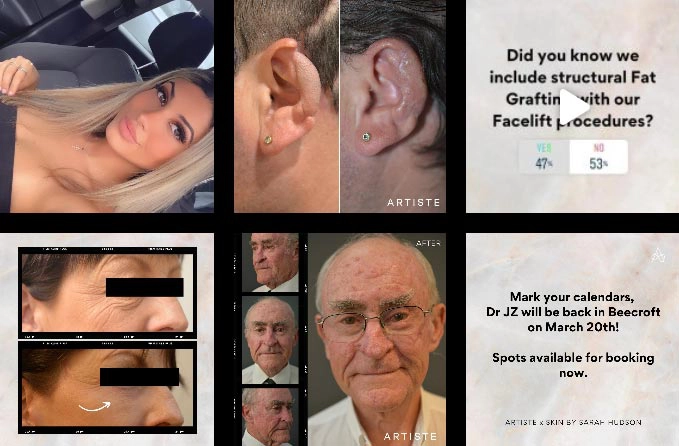How Children Will Benefit From Otoplasty
Model featured in photography
While protruding ears don’t pose any hearing problems to children, this can subject them to the teasing and bullying of other children. Because of this, children may suffer from far-reaching consequences including loss of self-esteem and poor academic performance way into their adulthood.
Ear surgery or otoplasty is done to correct protruding or bat ears and can be performed once the ears have fully matured. While this usually occurs at around five years old, there is no limit to when the surgery can be performed. Parents often have their children’s ears pinned back at the age of five and seven but even adults can benefit from this procedure.
The Benefits of Otoplasty
Ear plastic surgery improves the shape and proportion of a patient’s ears. Since protruding ears are very prominent, they can sometimes be referred to as bat ears and be the cause of embarrassment for children. Otoplasty is done to give ears back their natural shape, bringing balance and proportion to the face. Even the slightest changes to the size and shape of ears can have a significant effect on their self-confidence.
Potential Candidates for the Ear Surgery
From a medical point of view, otoplasty surgery in Sydney is often considered as elective surgery, and as such, if you decide to undergo or have your child undergo the surgery, you will likely be able to do so. That said, not everyone that feels insecure about their ears is a potential candidate for otoplasty.
Regardless of how you feel about the surgery, your surgeon will always consider your child’s health before agreeing to perform the procedure. If they determine that they are generally unhealthy, it’s best to make changes in their lifestyle first before undergoing the procedure. Additionally, if they have any ear issues such as recurring infections, clinics will not allow your child to undergo otoplasty.
Children who are experiencing self-esteem issues because of their ears may undergo otoplasty if they meet the clinic’s requirements. A potential candidate for this procedure is children with fully matured ear cartilage. Performing the surgery when the cartilage is not yet firm enough is risky and could lead to the recurrence of the ear’s protruding shape and several complications. While the clinic would require the parents’ permission for the procedure itself, most of them would gladly explain to the child the surgery’s process and why they need it.
Is Your Child Ready for Otoplasty?
Determine whether your child is ready for otoplasty by their ability to understand the procedure. First of all, they should want the surgery in the first place. Your child needs to be able to follow basic instructions, especially those that are necessary during their recovery process. Otoplasty is performed under anesthesia, so you will need to provide your surgeon with your child’s complete medical history to ensure that the surgery would be safe for them.
Ear surgery otoplasty requires a significant recovery period afterwards so it’s important to monitor your child after the procedure. They would likely experience a little discomfort and would have to wear a special dressing to help maintain the ears’ new shape but most children are able to return to school after a week.
Considering otoplasty for your child? Schedule an appointment with Artiste Plastic Surgery today and we can help guide you through the process.
Disclaimer: At Artiste Plastic Surgery, our Plastic Surgeons led by Dr Jack Zoumaras have been trained to the highest possible degree. All surgery has risks and it is always advised to get a second opinion. Risks are very real and we cannot guarantee any result. Results are illustrated as a guide only. All risks are managed and any need for revision surgery or complications (1-5%) can be managed by our specialist plastic surgeons.
Any statements on how you will feel is based on Level V Evidence:
Level V: How you will feel after plastic surgery varies between individuals, depending on psychological and physical factors. Our internal research is based on how patients in our practice feel after surgery.
The blogs are not a substitute for a medical consultation and do not form as part of the doctor to patient relationship.
SHARE THIS ARTICLE
Apr18
6 Key Factors to Consider When Choosing A Surgeon for Eyelid Surgery
Eyelid surgery or blepharoplasty might just be the thing to help you feel more refreshed and confident about your appearance. But with so many surgeons available, how do you find ...
READ MORE
Apr18
Why is Double Eyelid Surgery Popular?
The impact of Western beauty standards has become so far-reaching that double eyelids have become a desirable feature among Asians. The first recorded procedure of a double eyelid surgery being ...
READ MORE
ABOUT ARTISTE
Artiste Plastic Surgery is an Award Winning Specialist Plastic Surgery practice led by internationally trained Dr. Jack Zoumaras, Plastic Surgeon and Peer Reviewed Face Surgeon
Artiste offers the latest Cosmetic Surgical Procedures of the Face, Breast and Body, inspired from leading centres around the world.
STAY IN THE LOOP
Enter your email address below to receive updates on new articles and VIP access to promotions and special offers.
FOLLOW US ON INSTAGRAM








